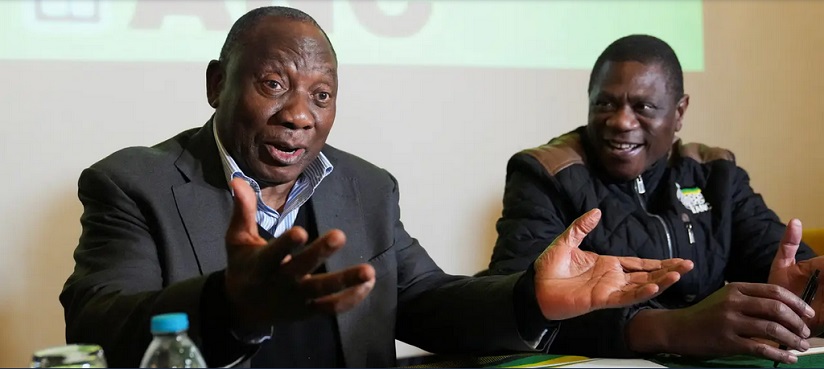Analyzing Ramaphosa’s “GNU” Model for South Africa: Viability and Stability
The recent parliamentary elections in South Africa have ushered in a new era of political dynamics, with the ruling African National Congress (ANC) facing the need for coalition governance – a concept previously unfamiliar to the party known for its long-standing dominance. President Cyril Ramaphosa’s approach of forming a Government of National Unity (GNU) with the Democratic Alliance (DA) and Inkhata Freedom Party (IFP) raises questions about the stability and effectiveness of such a coalition government in addressing the country’s challenges.
Acknowledging Defeat and Embracing Change
It is noteworthy that the ANC, a party accustomed to success and historical significance, demonstrated a rare show of humility and respect following its electoral defeat in the recent polls. The party’s acceptance of the election results and willingness to engage in coalition-building signify a departure from the entrenched power dynamics that have characterized South African politics in the past.
Political Landscape and Coalition Dynamics
The emergence of new political players, such as “The Spear of the Nation” party led by Jacob Zuma, reflects the evolving political landscape in South Africa. The ANC’s decision to enter into a coalition agreement with the DA and IFP signifies a strategic shift towards inclusive governance and collaboration across party lines.
Challenges and Opportunities in Coalition Governance
While the GNU model presents an opportunity for diverse voices and perspectives to be represented in government, it also poses challenges in terms of ideological differences and policy alignment among the coalition partners. The DA’s economic liberalism, contrasting with the ANC’s historical roots, and the IFP’s regional interests add complexity to the governance structure and decision-making processes.
Historical Context and Lessons from the Past
Drawing parallels with South Africa’s earlier experience of a Government of National Unity in the post-apartheid era, under the leadership of Nelson Mandela, offers insights into the potential benefits of collaborative governance in fostering reconciliation and national unity. However, the current political landscape, marked by power struggles and personal rivalries, presents a unique set of challenges for the new coalition government.
Ramaphosa’s Leadership and Political Dynamics
President Cyril Ramaphosa’s pivotal role in navigating the coalition government and balancing competing interests reflects his commitment to stability and governance effectiveness. However, his leadership has come under scrutiny from critics who view him as overly influenced by external forces and political expediency.
Zuma Factor and Power Struggles
The ongoing political tensions between Cyril Ramaphosa and Jacob Zuma, marked by past conflict and personal enmity, underscore the complex power dynamics within the ANC and the broader political landscape in South Africa. Zuma’s continued influence and legal battles add a layer of uncertainty to the political environment and coalition governance.
Policy Divergence and Foreign Relations
The contrasting foreign policy approaches of the ANC and DA, particularly regarding issues such as Israel, highlight the potential areas of disagreement and negotiation within the coalition government. Balancing diverse policy perspectives while maintaining government coherence will be a key challenge for the coalition partners.
Prospects for Stability and Governance Effectiveness
The success of the GNU model in South Africa hinges on the ability of the coalition partners to find common ground, prioritize national interests over partisan agendas, and effectively address the pressing socio-economic challenges facing the country. Building trust, fostering dialogue, and promoting inclusive decision-making will be essential for sustaining the stability and effectiveness of the coalition government.
Towards a Cohesive and Inclusive Future
As South Africa embarks on this new chapter of coalition governance, the collective efforts of the ANC, DA, and IFP to work together in the spirit of unity and collaboration will determine the success and longevity of the GNU model. Embracing diversity, respecting differing viewpoints, and prioritizing the welfare of all South Africans will be critical for steering the country towards a more cohesive and inclusive future.
In conclusion, while the viability of Ramaphosa’s GNU model remains to be tested in practice, the willingness of the ANC and its coalition partners to engage in collaborative governance signals a new era of political cooperation and dialogue in South Africa. By navigating the complexities of coalition dynamics, addressing historical grievances, and prioritizing national interests, the coalition government has the potential to usher in a period of stability, progress, and unity for the country and its people.

